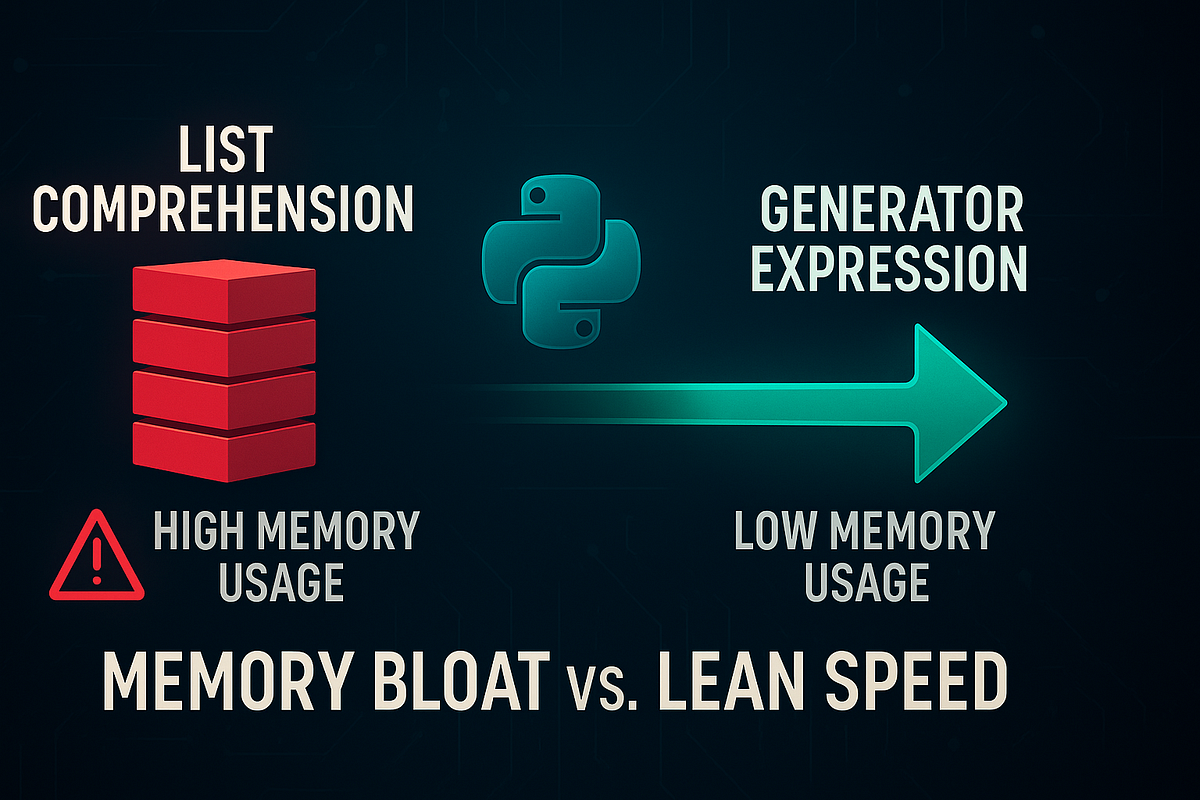Medium
1M
104

Image Credit: Medium
✨ Why Python List Comprehensions Are Slowing You Down — And What To Use Instead
- Python developers often rely on list comprehensions, but they can slow down the code and consume a lot of memory.
- Generator expressions offer a more memory-efficient solution by yielding one value at a time on demand, leading to a constant, tiny memory footprint.
- While generator expressions are useful for streaming data, passing into built-in functions like sum(), max(), and min(), and chaining multiple operations without storing intermediate lists, they are not suitable for reuse of values or random access.
- Using generator expressions can optimize code for speed, memory efficiency, and cleaner, more Pythonic syntax, making it a valuable tool in Python development.
Read Full Article
6 Likes
For uninterrupted reading, download the app